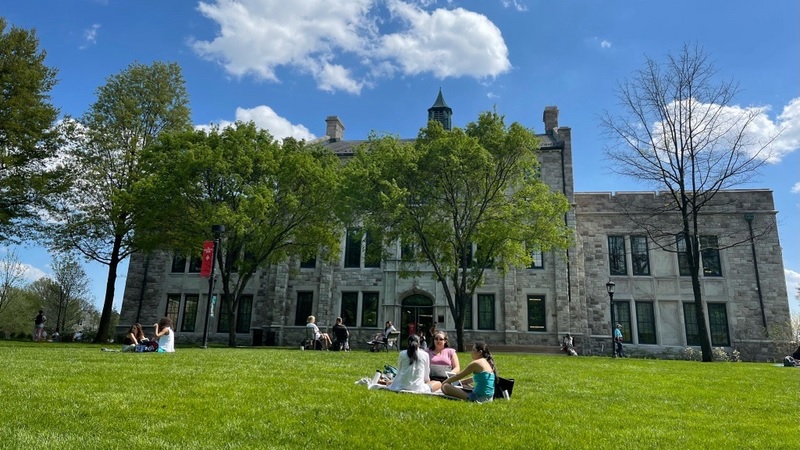
The National Science Foundation has awarded Loyola a $1.2 million grant to establish the Culturally Responsive Equitable STEM Teaching (CREST) program at the University. The funding, received over five years through the NSF’s Robert Noyce Teacher Scholarship Program, will support teacher candidates in developing the necessary knowledge and skills to implement equitable practices and to succeed as highly qualified STEM teachers in high-need schools.
By leveraging the existing Loyola-Baltimore County professional development school network, CREST will add innovative features to Loyola’s clinical preparation program, deepening student commitment to equitable teaching in their chosen discipline.
The grant was awarded to principal investigator Timothy B. P. Clark, Ph.D., associate professor of mathematics and statistics, and co-principal investigators Afra Hersi, Ph.D., interim dean of the School of Education; Qi Shi, Ph.D., director of the Center for Equity, Leadership and Social Justice in Education and associate professor of school counseling, and Stacy Williams, chair of the teacher education department.
“This grant is a unique collaboration between Loyola’s School of Education, Loyola College of Arts and Sciences, and Baltimore County Public Schools,” Hersi said. “Securing such a highly competitive grant is a wonderful tribute to our programs at Loyola and to the strong collaborative efforts among faculty in science and mathematics departments and the School of Education.”
The grant primarily funds student cost of attendance and retention of new teachers. Science and mathematics majors at Loyola and graduates in STEM fields from any university are eligible for scholarship support of approximately $23,000 toward earning a Master of Arts in Teaching. In exchange, CREST graduates will agree to teach science or mathematics in a high-need school.
“The CREST Scholars Program is a way to live out Loyola’s mission and leverage the culturally responsive practices infused in the School of Education’s curriculum,” Clark said. “At Loyola, we have the capacity and initiative to support STEM students with diverse backgrounds, especially those interested in secondary teaching. The CREST Program will reduce cost barriers so that overall, more STEM students can pursue a career in teaching.”
Resources for new teachers include an annual STEM summer institute and a seminar for early-career teachers held during the school year. During the summer institute, CREST graduates and their mentor teachers will further develop culturally responsive teaching practices and create curriculum resources.
Funding is available for 28 students in total over three cohorts of scholars and begins in June 2023.
“We are deeply honored to receive the Noyce award from the National Science Foundation—and proud of the faculty scholarship and collaboration that has made this possible,” said Cheryl Moore-Thomas, Ph.D., NCC, provost and vice president for academic affairs. “The award will greatly enhance Loyola’s ability to address one of our nation’s most pressing issues—the need to improve access to quality science and mathematics education for the next generation of students.”
In 2019, Hersi and Clark were awarded a $75,000 grant from NSF to help build a strong pipeline for recruiting and retaining diverse STEM educators.